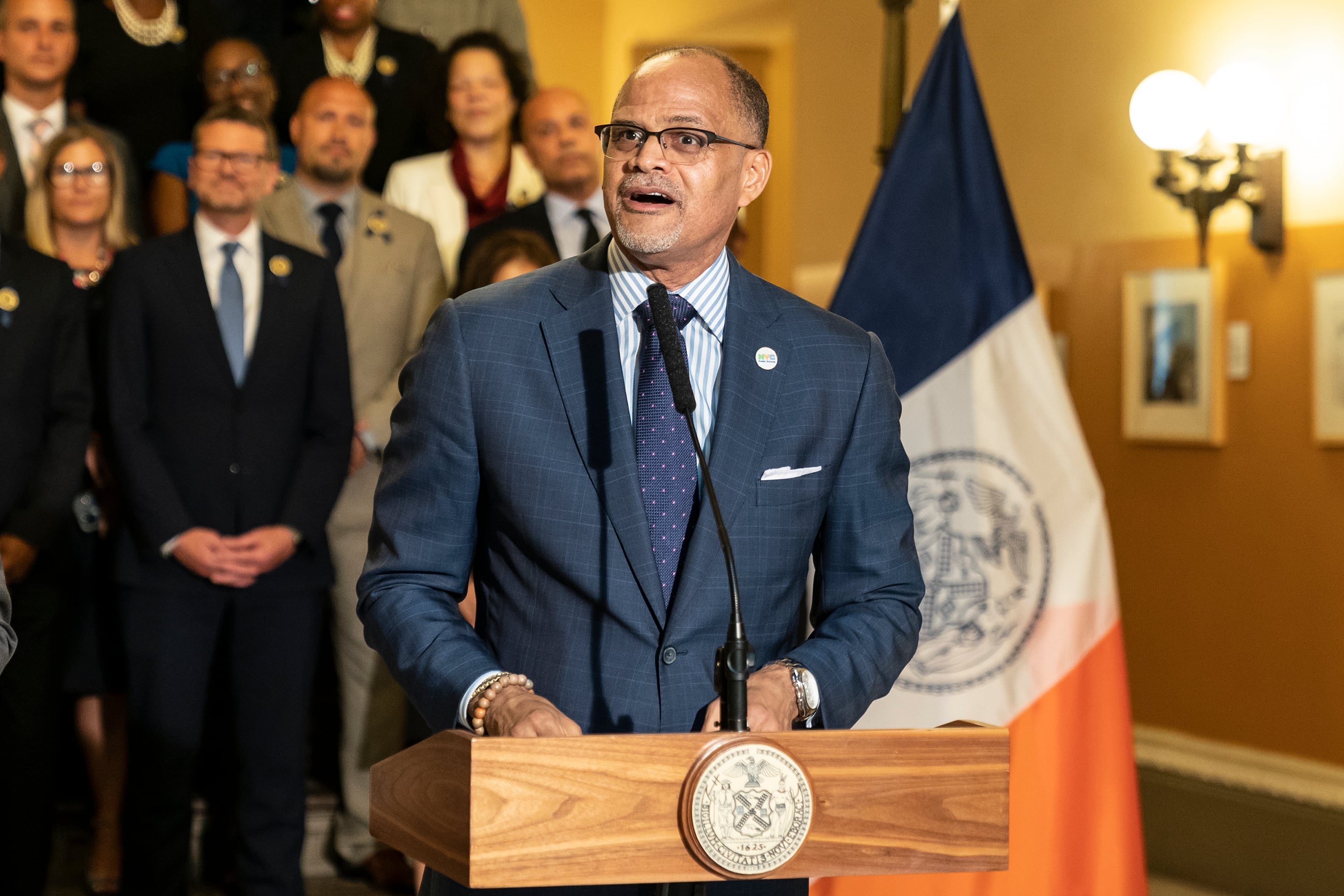In the wake of his decision to double down on selective admissions, New York City schools Chancellor David Banks offered a blunt argument in favor of that approach: Students who work “really hard” should have priority access compared with “the child you have to throw water on their face to get them to go to school every day.”
Speaking in front of corporate, nonprofit, and education leaders at a forum hosted by the Association for a Better New York, Banks said: “We made a decision, after hearing all the arguments, that merit really should matter.”
“If you’ve got a child who works really hard on weekends, and putting in their time and energy and they get a 98 average — they should have a better opportunity to get into a high-choice school, then, you know, the child you have to throw water on their face to get them to go to school every day.”
Banks added that “all children are valuable,” but “if you have a child, who you’ve noticed putting that extra effort, they ought to have that opportunity.”
The remarks immediately drew fierce criticism from some educators, parents, and advocates who said they were insensitive and reflect the view that some children vying for middle and high school seats are less worthy of quality schools than others.
“When you’re talking about admissions screens for middle school students, you’re talking about 8- and 9-year-old kids,” said Nyah Berg, the executive director of New York Appleseed, a group that pushes for school integration. The comments, she said, “lacked empathy,” as some students might have trouble getting to school for reasons out of their control.
Compared with other large school districts, New York City allows a greater degree of screening based on academic achievement, which concentrates lower-performing students on the same campuses and contributes to the city’s status as one of the most racially segregated in the country.
Banks’ statements come at a particularly contentious moment, as his administration recently announced that middle schools will once again be allowed to use metrics, such as grades, to admit students after a pause on competitive admissions during the pandemic. Regional superintendents are currently in the process of determining how middle school screens will work on individual campuses.
For high schools, students must score in the top 15% of their class or top 15% citywide with at least a 90 average in their core subjects to get first access to selective schools under Banks’ admissions policy.
Asked by a reporter about what message his comments might send to parents about who the city’s public schools are for, he said “it wasn’t meant to cast aspersions.” The description of a student who needed to be doused with water to wake up for school “came from a parent who said it to me,” Banks said, adding that his own four children had varying levels of motivation.
He also referenced the Eagle Academy schools he helped launch in 2004, which are geared toward young men of color and do not screen students based on academic ability. “My entire career has been spent working with the least of these, trust me,” he said. “But I do know that we have some kids who are more motivated than others.”
A few observers defended Banks’ comments, including Robert Pondiscio, a senior fellow at the conservative American Enterprise Institute and a former public school teacher in the Bronx.
“If this outrages you ‘because equity’ there’s a good chance you’ve never taught low-income kids of color who work hard and get good grades,” he wrote on Twitter. “They are legion. And we teach them they’re chumps when we don’t recognize and reward them for it.”
This isn’t the first time Banks’ comments about academic screening have drawn scrutiny. In announcing the new middle and high school admissions policy, he made comments that some argued were similarly insensitive.
“If a young person is working their tail off every single day and they get a 99% average … that should be honored,” Banks said. “I think it’s really important that if you’re working hard and making the grade, you should not be thrown in a lottery with just everybody.”
Alex Zimmerman is a reporter for Chalkbeat New York, covering NYC public schools. Contact Alex at azimmerman@chalkbeat.org.





